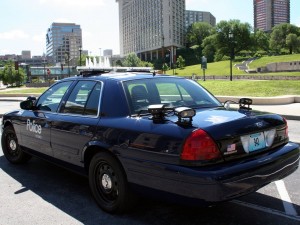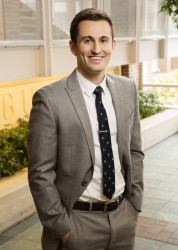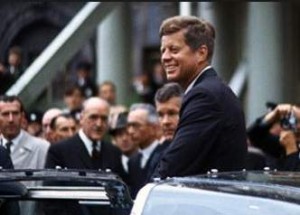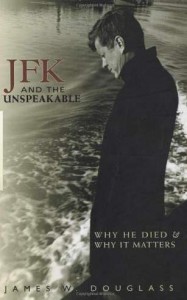Podcast: Play in new window | Download
Updates:
- Bill Moyers Interviews Attorney Heidi Boghosian About Spying On Democracy
- Two Admirals Face Probe In Navy Bribery Scam
- WikiLeaks Publishes Secret Draft Chapter of Trans-Pacific Partnership
——
Local Police Departments and Mass Surveillance Technology
As technology becomes more available to local police departments, mass surveillance, data collection and retention are now rapidly expanding. There are third parties involved profiting from collecting data and selling it back to various agencies and governments down the line. There are many concerns including the reasonable expectation of privacy in public and the build up of individual digital dossiers. We’re joined today by Assistant Professor Law Stephen Rushin at the University of Illinois College of Law. In his recently published paper The Legislative Response to Mass Police Surveillance, Rushin discusses the rise of expanding advanced police surveillance and public privacy.
- Traditionally law enforcement have utilized a bunch of different technological replacements for traditional behavior.
- Law enforcement in the past might have tried to say, isolate individuals that were speeding. Before the advent of radar, the ability to measure this in a technological way, they had ways of simply following people.
- So, once law enforcement had the ability to monitor speed electronically, that was a means of dramatically improving the efficiency on an otherwise lawful police activity.
- Initially these technological innovations seem to be a relative good thing but in recent years there’s been a movement in local law enforcement to utilize extreme data retention with things like Automatic License Plate Readers, security cameras with facial recognition.
- These tools allow law enforcement to monitor an entire community in a relatively invasive way without invading any legally protected areas of privacy.
- Local law enforcement is trying to share this data across jurisdictional lines.
- We have 18 thousand different local police departments.
- Once that data gets shared, its essentially out in the open.
- These private automatic license plate readers are put up all across the country to monitor the whereabouts of cars.
- Whenever someone is driving in public, you don’t expectation of privacy in your movements.
- What’s interesting is these private third parties are working with law enforcement and sharing that data.
- We are actually just starting to learn the dangers of big data collection by the state.
- If I collect years of data from automatic license plate readers, I’d have a pretty good digital dossier of where one individual person has been over the last two years.
- I know stuff about where that person goes during the day. I know about potentially their political affiliation.
- If you allow local law enforcement to collect copious amounts of data on an individuals’ whereabouts, then you potentially allow them to know a lot about their citizens.
- We need to distinguish between observational comparison and what I call indiscriminate data collection.
- The proposal I make is that we need to be concerned about the length of time local law enforcement retain data.
- The ACLU is doing terrific work, surveying police departments to see what kind of data they’re collecting via surveillance.
- There’s a lot of questions about how ALPR work has effected minority groups especially Muslims in the UK.
- Evidence has emerged that authorities used ALPR to surveil Muslims in the UK.
- Social Science Research Center
Guest – Attorney Stephen Rushin, research focuses on criminal law, criminal procedure, and policing. His ongoing research uses a combination of qualitative and quantitative methods to examine the Justice Department’s implementation of structural reform litigation in American police departments. He has previously published articles on advanced surveillance technologies, police interrogation procedures, juvenile justice policy, and federal sentencing laws. Rushin holds a J.D. from Berkeley Law, where he served on the law review. He received a B.A. in government from the University of Texas, where he graduated with high honors. Rushin is currently a Ph.D. candidate in the Jurisprudence and Social Policy Program at Berkeley.
—–
JFK and the Unspeakable: Why He Died and Why It Matters by Jim Douglass
JFK and the Unspeakable is the first book of 3 on the assassinations of the 1960s. Orbis Books has commissioned author James W. Douglass to write about the murders of JFK, Malcolm X and Martin Luther King, and his the third will be on the assassination of Bobby Kennedy. The heart of JFK the Unthinkable, is not how Kennedy was killed or how Kennedy became a threat to the systemic war machine, but why DID Kennedy die? Author James Douglass says Kennedy knew that he would die and had the guts to stand up to the system and take the hit. This narrative was lost for decades, obscured by disinformation about Kennedy’s character and the conspiracy of his assassination. One review summarizes Douglass’s book in this way : JFK’s belated effort to turn America from an armed culture of victory to a member of an international peaceful world was shot down in Texas for a reason.
Jim Douglass:
- John F. Kennedy’s experience in WWII: He was in the South Pacific, he volunteered. He was on that PT boat.
- What happened on that PT boat, is that it got split into two by a Japanese destroyer. He lost brothers and friends at that time. An extraordinary experience being adrift on the ocean warning other PT boats. The experience create a distrust in military authority.
- He said that he wanted to splinter the CIA into a thousand pieces and scatter to the winds.
- As Kennedy said to his friends, “they figured me all wrong.”
- The Unspeakable: the kind of evil and deceit that seems to go beyond the capacity of words to describe. The midst of war and nuclear arms race, the assassinations of Kennedy, Martin Luther King and Malcom X that the term was used.
- JFK’s vision is articulated in the address June 10, 1963, arising from the turnaround of the missile crisis and Bay of Pigs. He wanted to move step by step into a disarmed world.
- Nikita Khrushchev put that speech all over the Soviet Union. The Cuban Missile Crisis is a deeply misunderstood part of our history, because it’s usually portrayed as Kennedy going to war with Nikita Khrushchev and beating him.
- The truth was that Kennedy and Nikita Khrushchev were in over their heads, the US generals wanted nuclear war, because they had more warheads than the Soviets.
- Nikita Khrushchev: We now have a common enemy from those pushing us toward war.
- At that point the Cold War turned upside down because Kennedy and Khrushchev became closer to each other than either was toward their own military power system.
- Vietnam: Kennedy’s military people would not give him an exit policy. He signed the withdrawal order from Vietnam before he was assassinated.
- His friends said that he had an obsession with death. It was not an obsession but a real assessment that he was going to die. If you try to turn around a national security state that is dominating the world,
- and you do so as president of the United States, of course you’re going to die. Kennedy knew that.
- The book is a story on the deliberate destruction of hope, the vision of change, a turning of this country all of which was happening and had to be stopped. US Agencies killed Dr. Martin Luther King – 1999 Verdict
- We’re in the same scene right now with Petraeus and McChrystal setting up Obama. They were dictating terms to Obama, unlike Kennedy, he did not face them down.
- We need to get out ahead of Obama so that he can do something.
Guest – James W. Douglass, author and a longtime peace activist and writer. James and his wife Shelley are co-founders of the Ground Zero Center for Nonviolent Action in Poulsbo, Washington, and Mary’s House, a Catholic Worker house of hospitality in Birmingham, Alabama.
————————————————————————-



